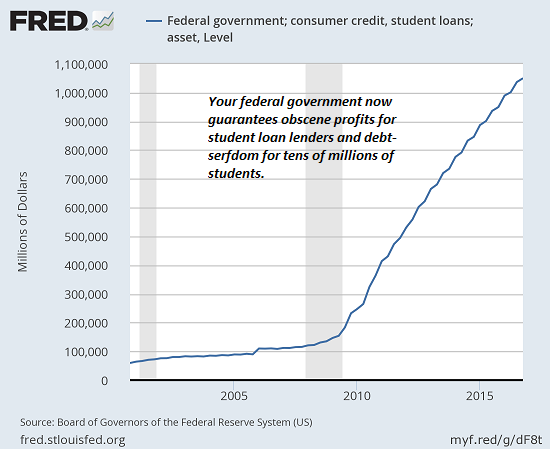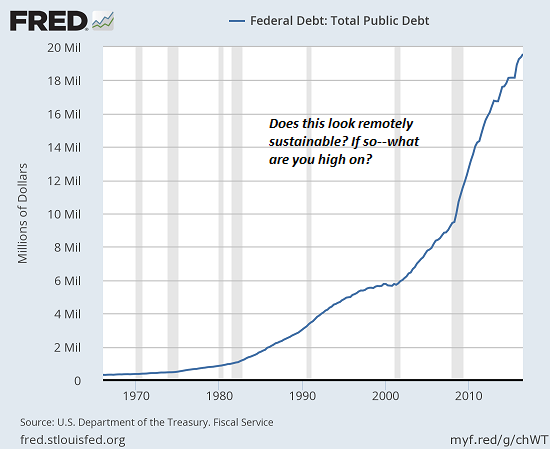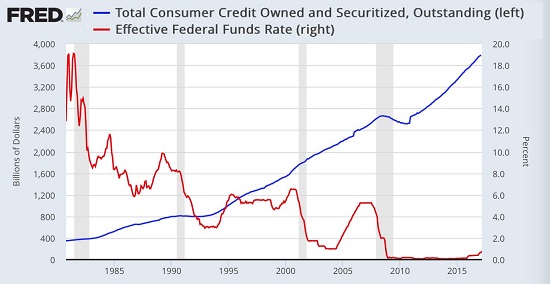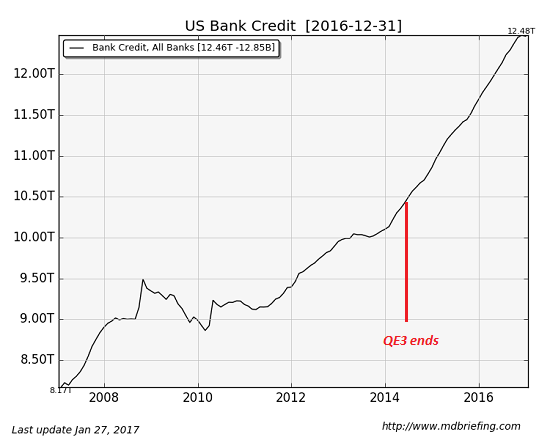2009 - 2016: Was the Eight-Year Experiment in Maintaining the Status Quo a Success or a Failure?
October 1, 2017
Clearly, the core strategy of maintaining the status quo is to borrow and spend trillions of additional dollars every year.
The Obama presidency was a grand experiment to test this thesis: the status quo of the U.S. is a self-correcting mechanism. Left to its own devices, it will automatically correct any socio-economic-political imbalances, given enough time.
The Grand Strategy of the post-Global Financial Crisis era was simple: maintain the status quo as is. The Obama administration's major policy initiative, ObamaCare, a.k.a. the Affordable Care Act, was nothing but the formalization of the existing status quo in healthcare, i.e. the taxpayers subsidize private-sector profiteering.
That is the Affordable Care Act in a nutshell. Costs have not declined, the health of Americans can hardly be said to have improved significantly, but garsh, did healthcare sector profits soar. Most importantly, the status quo was maintained: nothing actually changed in the insurance, pharmaceutical or hospital sectors.
The same can be said for every other sector of the economy: nothing really changed, just more of the same. Higher education: nothing changed, just more student loan debt was issued. The defense industry: more of the same. Global War on Terror, a.k.a. The National Security State--more billions sluiced into the shadows.
President Obama was a master of telling everyone what they wanted to hear while changing nothing in the basic structure of the Empire. The Imperial Imperative of destabilizing nations that didn't meet with Imperial approval continued unchanged. The murder-by-drone campaign expanded, the support of a hopelessly corrupt regime in Afghanistan continued unchanged, and so on.
There were two unstated assumptions in this eight-year experiment:
1. The status quo is perfectly fine and didn't need changing
2. The self-correcting mechanism of the status quo--the self-serving pursuit of maximizing private gain--naturally yielded up whatever policy tweaks were deemed beneficial/ necessary.
If there is any dividing line in America today, it's not political: it's the division between those who see the status quo arrangement as marvelously successful, and those who see the tiller lashed down tight as the great ship heads for shoals that will rip the hull to shreds.
Those in the first camp see no need to change anything beyond minor policy tweaks. Those in the second camp see an unsustainable status quo that kicked the can down the road for eight years rather than tackle the systemic problems that are undermining the nation.
It's too early to say if the eight year experiment is a success or a failure. There is precious little evidence that the relentless self-serving pursuit of maximizing private gain is magically self-correcting what's broken. Rather, it seems that existing extremes are simply being pushed to new extremes--for example, student loan debt:

Federal debt:

Consumer credit:

Bank credit:

Clearly, the core strategy of maintaining the status quo is to borrow and spend trillions of additional dollars every year. Fortunately for the status quo, near-zero interest rates have created the comforting illusion that debt doesn't matter because it's almost free.
Perhaps the eight-year experiment will appear successful until the ever-expanding
debt loads finally start to matter.
If you found value in this content, please join me in seeking solutions by
becoming
a $1/month patron of my work via patreon.com.
Check out both of my new books, Inequality and the Collapse of Privilege ($3.95 Kindle, $8.95 print) and Why Our Status Quo Failed and Is Beyond Reform ($3.95 Kindle, $8.95 print, $5.95 audiobook) For more, please visit the OTM essentials website.
NOTE: Contributions/subscriptions are acknowledged in the order received. Your name and email remain confidential and will not be given to any other individual, company or agency.
|
Thank you, David F. ($10/month), for your outrageously generous subscription to this site -- I am greatly honored by your steadfast support and readership. |
Thank you, Michial T. ($5/month), for your superbly generous pledge to this site -- I am greatly honored by your support and readership. |

Discover why Iím looking to retire in a SE Asia luxury resort for $1,200/month. |